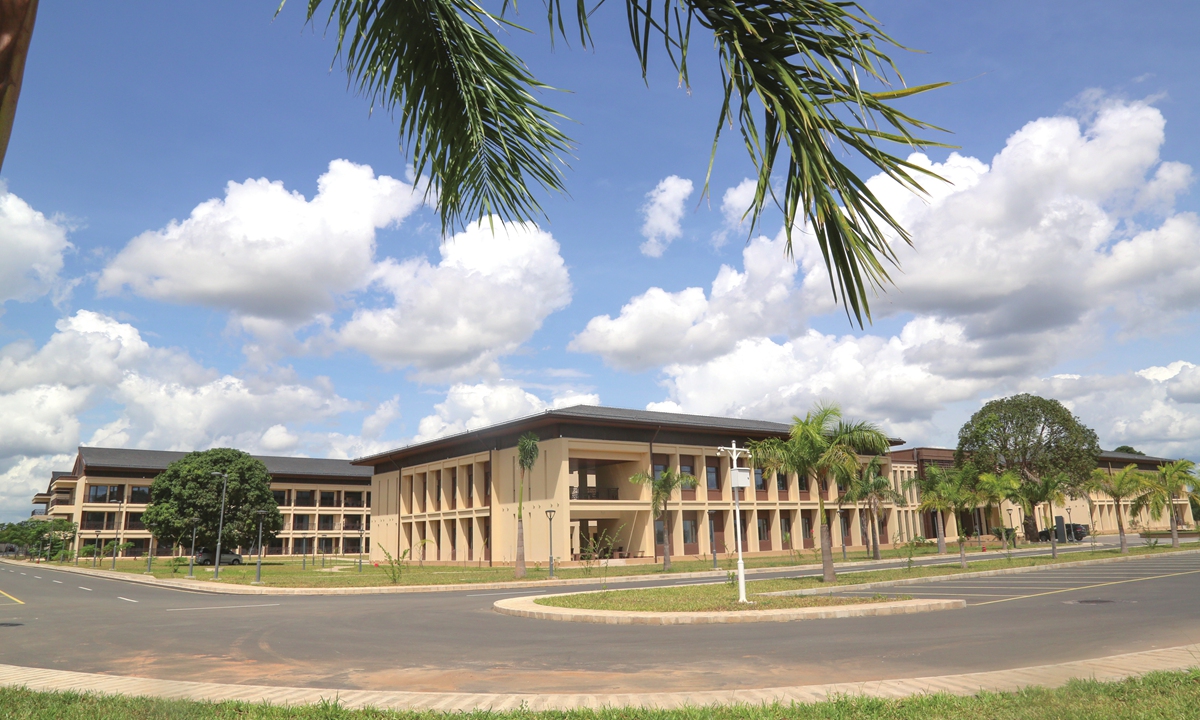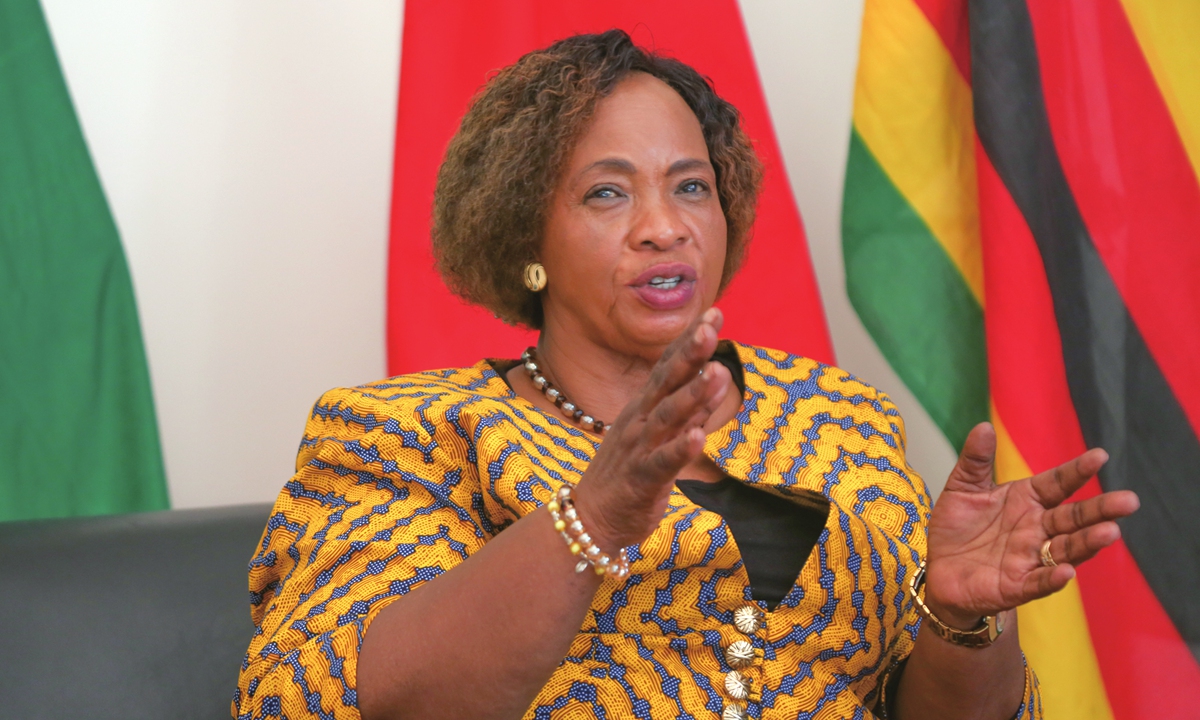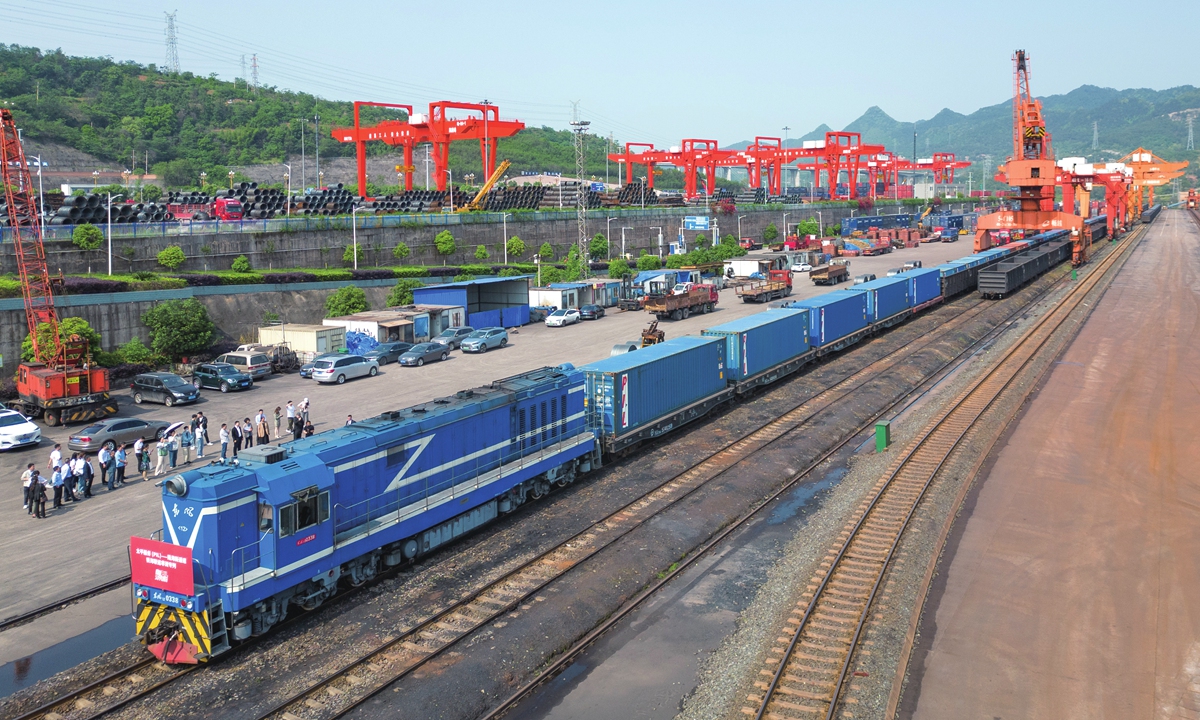Editor's Note:
Chinese people believe that letters are as valuable as gold. For thousands of years, letters, across mountains and oceans, have been delivering writers' sentiments and conveying friendship and expectations.
Xi Jinping, general secretary of the Communist Party of China (CPC) Central Committee and Chinese President, has managed to find time to reply to some letters from different parts of society and the world despite his busy work schedule.
Through his letters, Xi has corresponded with international friends from all walks of life on numerous occasions, part of a series of excellent stories of China's international exchanges in the new era. The letters have also added vivid color to the diplomacy between China and other countries.
The Global Times traced and contacted some of the recipients of Xi's letters, to hear the inspiring stories behind the letters and their communication with the president.
In this installment, we talked to the headmaster of an institute in Africa that cultivates talent and future leaders on the continent to learn about the story behind the message exchanges between the Chinese president and the school, as well as how China's development has brought inspirations to African countries.

The Mwalimu Julius Nyerere Leadership School based in Tanzania is an institute for rising stars in politics in southern African countries. Photo: Xinhua
Today, against the backdrop of increasing exchanges in various fields between China and African countries, some rising stars in African politics and business are being nourished by China's experiences in development.
The Mwalimu Julius Nyerere Leadership School based in Tanzania is an institute for southern African countries. It opened in 2022 with its first workshop held in late May and early June of the year.
Under the theme of "New Development in the New Era: Exploration by and Exchanges between the CPC and the Former Liberation Movements of Southern Africa," it gathered 120 young and middle-aged officials from six major Southern African parties.
After the first training workshop in May 2022, all participants wrote a letter "to thank Comrade Xi Jinping for facilitating the training," according to Marcellina Chijoriga, principal of the Mwalimu Julius Nyerere Leadership School.
To their surprise, Xi Jinping, general secretary of the Communist Party of China Central Committee, replied to the letter.
In his letter, Xi said he is pleased to know that the workshop was successfully held, during which the participants discussed the important topics of what kind of development a ruling party should lead its country to pursue in the new era and how to pursue it, learnt from each other and gained better understanding of such topics, the Xinhua News Agency reported on June 10, 2022.
Xi pointed out that the realization of national development, national rejuvenation and people's happiness requires continuous efforts for generations.
Building a better world requires exchanges and mutual learning among countries, he said, adding that the participants are determined to be the pioneer of the times and the pillar of national rejuvenation, which is the original purpose of the school.
Inspiring development"We have seen how China has developed over the decade, which shows the world that their development paths are working. Strong leadership has been a major factor contributing to economic success," said Chijoriga, the principal.
"The cadres pay attention to many aspects of the CPC's growth paths… After the May 2022 training, participants appreciated the 14 principles that China is applying to achieve tremendous and fast development," she said.
These principles include governance, ensuring every aspect of development is people-centered, rule of law, ensuring utmost discipline in the Party, and equality of all countries regardless of size, wealth, and strength, thus building a community with a shared future for mankind, and environmental protection, among others. These could work for their respective countries, the principal summarized.
"To me, any international force that seriously supports those areas in a win-win approach can be a good opportunity to take. A friend who supports growing and improving your economy is a good friend," Chijoriga said.

Marcellina Chijoriga, principal of the Mwalimu Julius Nyerere Leadership School Photo: Xinhua
Noting that youth is always accompanied by dreams, Xi said he hopes the participants make the best of what they have learned, keep working hard and embrace their youthful ambitions on the journey to realize the dream of national rejuvenation and African rejuvenation.
China and Africa belong to a community with a shared future that shares weal and woe, and the hope of long-term friendship between the Chinese and African people rests with the younger generation, Xi noted.
Xi said he hopes that the participants voluntarily shoulder the responsibility and mission entrusted to them by this era, take an active part in the cause of the China-Africa friendship, carry forward and pass on the spirit of China-Africa friendship and cooperation, and contribute to the building of a high-quality China-Africa community with a shared future.
Future leaders
According to Chijoriga, a total of 120 trainees participated in the training workshop. Their average age was 41. There were 55 women and 65 men. There were 20 individuals from each of the six participatory countries - Angola, Mozambique, Namibia, South Africa, Tanzania, and Zimbabwe.
Talking about the future leaders of Africa, Chijoriga said "they have more hope to shoulder the responsibilities than before. They promised to integrate theory with practice, and were fully devoted to seeking development for their countries, rejuvenation for their nations, and happiness for their people."
They feel able to explore the new world, build capacities and capabilities of their people, and make due contributions to their countries' political and socio-economic development, she said.
The Mwalimu Julius Nyerere Leadership School was named after the first chairman of Tanzania's Chama Cha Mapinduzi (CCM) party and Tanzania's former president Julius Nyerere, in memory of his important contributions to the national liberation movement of southern Africa.
The leadership school was co-founded by six parties in southern Africa: Tanzania's CCM, the African National Congress (ANC) of South Africa, the Mozambique Liberation Front Party, the People's Movement for the Liberation of Angola, the SWAPO Party of Namibia, and the Zimbabwe African National Union-Patriotic Front (ZANU-PF).
In February 2022, Xi sent a congratulatory letter for the inauguration ceremony of the school.
As the world is undergoing changes rarely seen in a century, China and Africa need to strengthen solidarity and cooperation more than ever to cope with risks and challenges, promote common development and improve people's well-being, Xi stressed.
The CPC is willing to take the inauguration of the Julius Nyerere leadership school as an opportunity to strengthen the exchange of state governance experience with parties in Africa, support each other in pursuing development paths that suit their own national conditions, deepen pragmatic cooperation, promote the building of a high-level community with a shared future between China and Africa, and contribute more to the building of a better world, he said.

A rail-sea intermodal train to Africa departs from Southwest China's Chongqing on April 27, 2023. Photo: VCG
Closer tiesIn the last decade, China has made significant strides in enhancing the quality of life and well-being of people in Africa, as well as bolstering the development capabilities of African nations. Both parties have been employed to establish a strong China-Africa community, with a common vision for the future across multiple sectors.
The favorability of China among African citizens is increasing, and cooperation between Africa and China is also deepening.
China holds a significant advantage over the European Union in terms of decision-making and timely completion on infrastructure projects in Africa, according to a survey conducted by the Inter Region Economic Network (IREN), a Kenya-based think tank, the South China Morning Post reported in July 2022.
The survey, based on responses from over 1,000 policymakers from 25 African countries in the last quarter of 2021, highlights China's strength in building tangible projects such as roads, power dams, railways, and bridges. In contrast, the European Union's strengths lie in the abstract areas of soft power exchanges, high standards, and climate change consciousness.
In a 2022 survey among young people in Africa, China overtook the US as the "foreign power" with the biggest positive influence in Africa in the eyes of young Africans.
The survey conducted by the Ichikowitz Family Foundation found that 76 percent of 4,507 young Africans named China as the "foreign power" with a positive influence on their lives, while the figure for the US was 72 percent. In 2020, 83 percent of the respondents saw the influence of the US as positive, compared with 79 percent for China.
People who view China's impact positively cite the affordability of Chinese goods, as well as Chinese investments and aid for infrastructure development. These individuals also believe that China is contributing to the generation of job opportunities for people in their respective countries, which is a primary concern for young people in general.
Chinese Foreign Minister Qin Gang emphasized in January that China will continue to be Africa's development partner for common growth and work together to build the China-Africa community of shared future in the new era. Qin made these remarks during the eighth China-African Union (AU) Strategic Dialogue, where he met with AU Commission Chairperson Moussa Faki Mahamat at the AU headquarters in Addis Ababa, Ethiopia.
China has always prioritized Africa in its diplomacy, and carrying forward and expanding China-Africa friendship has become a glorious tradition and a distinctive feature of China's diplomacy, he said.






